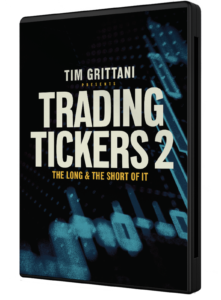Have you ever wondered how the prices of options contracts are determined?
For anyone new to options trading, the pricing of contracts can be utterly dumbfounding…
Option prices mostly track with the moves of the underlying stock — but there are a few big exceptions you must be aware of.
Not a week goes by when I don’t discuss a highly liquid, extremely volatile options trade.
But as I was looking over my notes for this week, I kept coming back to the vital role that market makers (MMs) play in the world of options trading.
Moreover, there seems to be a lot of confusion around who MMs are, what they do, and why options traders should pay close attention to their moves.
So sit back, relax, and allow me to explain the vital role of MMs in the options market…
What Market Makers Do
The first key point to understand is that any options trade is a transactional purchase…
Every time you buy contracts, there’s an MM on the other side of the trade who’s gaining money by selling them to you.
MMs are individuals or entities who professionally buy and sell options contracts, looking to profit off of the bid-ask spread.
MMs use a variety of pricing metrics, including implied volatility (IV), to determine how much the buyer of an option should pay for a particular contract.
These guys aren’t like me — trying to book 100%+ gains on weekly options. They instead focus on selling contracts with size and volume. The more you trade, the more they make.
If options traders are the casino gamblers of the stock market, then MMs are the house. They give us a table to play our game on by taking the other side of our speculative bets.
We all know that the house usually wins. But with the perfect set of circumstances and a bit of luck, gamblers could bankrupt an entire casino.
Remember when r/WallStreetBets nearly shuttered Melvin Capital?! (More on that later…)
In this analogy, options trading isn’t roulette or blackjack — it’s poker. A game of skill.
Just as excellent poker players study constantly when they’re away from the table, competent traders do the same when the market’s closed.
Why Market Makers Matter
Let’s look beyond MMs’ basic functions. A specific mechanic in market-making has led to some of the juiciest trading setups in recent history.
If you haven’t guessed yet, I’m talking about gamma squeezes (short squeezes fueled by options trading).
Many of the moves that occurred in meme stocks — including the infamous squeeze in GameStop Corp. (NYSE: GME) — are prime examples of this.
Most MMs run their businesses conservatively and never take on outsized risk. But occasionally, MMs make judgment errors and miscalculate their ‘neutral’ position in the market.
As you can imagine, the past few years have been like the Roaring 20s for many experienced MMs.
The influx of retail traders into the options market has increased the overall earning potential for anyone selling calls or puts.
There’s never been as much volume or liquidity on calls and puts as there is today. And I think we can attribute much of this surge to one particular phenomenon among retail traders…
Why Options Traders Should Care
Every once in a while, a situation like GME comes along and throws MMs for a loop and gives options traders a golden opportunity…
When MMs have sold millions of dollars worth of calls that then blast deep into the money, they have no choice but to hedge their positions in an attempt to avoid margin calls from their prime brokers.
So how can they hedge? They essentially have two choices … They can either buy the calls that they were previously selling themselves — or buy the underlying stock.
Watch This Exclusive Crypto Webinar NOW!
(With millionaire trader Matt Monaco)

If you want to see how a millionaire trader is dealing with the crypto boom…
Then you need to see this webinar.
The latter of the two choices is more likely. But both roads lead to the same outcome — the share price of the underlying stock going much higher.
This exact mechanic is the options market’s version of a short squeeze, AKA a gamma squeeze.
Options contracts are leveraged (representing 100 shares of the underlying stock). So gamma squeezes generally spark wilder price action than a traditional common-share short squeeze.
Again, It’s like a short squeeze on uppers.
Gamma squeezes are some of the only setups that offer options traders the ability to book 1,000%, 5,000%, even 10,000% gains (I’ve seen it).
But to have any chance at finding these setups, you need to pay attention to options pricing related to MMs’ subtle moves.
Final Thoughts
MMs are individuals (or entities) who professionally buy and sell options contracts, looking to profit off of the bid-ask spread.
They provide broad liquidity that guarantees most of your orders get filled. Every time you buy options contracts, it’s probably an MM that’s selling them to you.
For options traders, a key part of your studying should be developing a firm grasp of where you’re buying the contracts from — and how their prices are derived.
Think about it. In recent history, slight miscalculations from MMs have led to some of the greatest trading opportunities in recent memory.
So … Who knows? If you learn to study the sneaky moves of MMs with discipline, maybe you can find the next gamma squeeze before it even begins.
Anything’s possible in the options market. Expect the worst and prepare for everything. And whatever you do … keep a close eye on the MMs.


